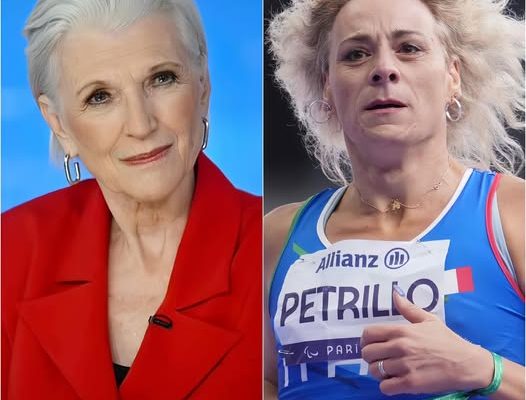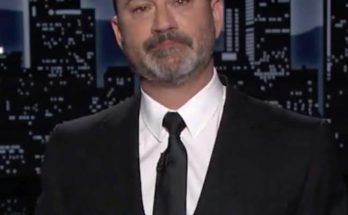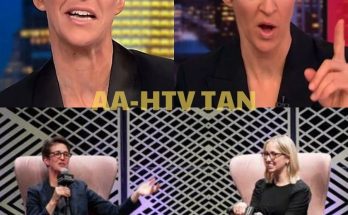In an era defined by inclusivity and the fight for equal rights, few topics have ignited as much debate as the intersection of gender identity and competitive sports. Recently, Maye Musk, the mother of tech mogul Elon Musk, added fuel to this contentious fire. Her bold statement, dubbed a “10-word call to action,” advocating for a boycott of biological men competing in women’s sports, has sparked widespread controversy and debate across social media and news platforms alike.

Maye Musk, a renowned model, dietitian, and social media personality, is no stranger to making waves. However, her recent comments have catapulted her into an entirely different arena—one steeped in cultural, scientific, and political complexities. The succinct statement, shared on her social media accounts, has resonated with many while enraging others. Musk’s post read: “Boycott sports allowing biological men in women’s competitions now.” With this declaration, she has drawn both praise and criticism, underscoring the divisive nature of this issue.

The debate centers on the participation of transgender women—individuals assigned male at birth but identifying and competing as women—in women’s sports. Advocates argue that inclusivity is essential for the evolution of society and the protection of human rights. Critics, on the other hand, raise concerns about fairness and biological advantages that could compromise the integrity of women’s sports.

Maye Musk’s statement comes at a time when the global sports community is grappling with how to navigate this issue. Prominent organizations such as the International Olympic Committee (IOC) and World Athletics have implemented policies addressing the eligibility of transgender athletes. These policies often consider factors like hormone levels and transition timelines, aiming to strike a balance between inclusivity and fair competition. Yet, as Musk’s comments highlight, the debate remains far from settled.
Proponents of transgender inclusion argue that gender identity should be respected in all aspects of life, including sports. They contend that excluding transgender athletes sends a harmful message, perpetuating discrimination against an already marginalized group. Advocacy groups emphasize that sports should serve as a platform for unity and empowerment, not division.
Critics of transgender participation in women’s sports, however, often cite scientific studies that suggest biological males possess inherent physical advantages in areas such as muscle mass, bone density, and cardiovascular capacity. These advantages, they argue, persist even after hormone therapy, raising concerns about the competitive imbalance. Many point to high-profile cases of transgender athletes dominating women’s events as evidence of the issue’s complexity.
Maye Musk’s call for a boycott aligns with the views of those advocating for stricter regulations on transgender athletes. Supporters of Musk’s stance view her as a courageous voice speaking out against what they perceive as a growing threat to the integrity of women’s sports. Her supporters argue that her statement is not about exclusion but about preserving fairness and opportunities for cisgender women.
However, the backlash against Musk has been swift and vocal. Critics accuse her of promoting transphobia and using her platform to amplify divisive rhetoric. Many argue that her statement oversimplifies a multifaceted issue, reducing it to a binary choice between inclusivity and fairness. Advocacy groups for transgender rights have called her comments harmful and irresponsible, emphasizing the importance of nuanced dialogue and understanding.
The controversy has reignited broader questions about the role of celebrities and public figures in shaping societal debates. With millions of followers across her social media platforms, Musk’s words carry significant weight. Critics argue that such statements, made without acknowledging the complexities involved, risk polarizing an already contentious issue further.
While the debate rages on, it is essential to recognize the voices and perspectives of athletes themselves. Many cisgender female athletes have expressed concerns about competing against transgender women, fearing that it could undermine their hard-earned achievements. On the other hand, transgender athletes have shared stories of their struggles, emphasizing the importance of inclusion and acceptance in sports.
This debate is not confined to the sports arena; it reflects broader societal tensions around gender identity, equality, and human rights. Policymakers, sports organizations, and advocacy groups face the daunting task of navigating these tensions while striving to create equitable solutions. As Maye Musk’s comments demonstrate, there are no easy answers. Striking a balance between inclusivity and fairness requires careful consideration of scientific evidence, ethical principles, and the lived experiences of all individuals involved.
The media’s role in shaping public perception of this issue cannot be overlooked. Headlines and soundbites often simplify complex debates, fueling division rather than fostering understanding. In the case of Maye Musk’s “10-word” statement, the media frenzy has amplified the polarization surrounding the issue, making it even more challenging to find common ground.
Public opinion on transgender athletes in sports remains deeply divided. Polls indicate that while many people support transgender inclusion in various aspects of society, a significant portion believes that competitive sports require distinct considerations. This divide reflects broader societal struggles to reconcile evolving understandings of gender with long-standing institutions and norms.
As the mother of one of the world’s most influential figures, Maye Musk’s words carry symbolic significance. Her statement has sparked conversations not only about sports but also about the responsibilities of public figures in addressing sensitive issues. While some view her as a champion for fairness, others see her comments as an unwarranted intrusion into a complex and deeply personal matter.
The future of this debate will likely hinge on continued research, dialogue, and policy development. Scientific advancements in understanding the effects of hormone therapy on athletic performance may provide clearer guidance. Meanwhile, sports organizations will need to engage in inclusive and transparent decision-making processes to address the concerns of all stakeholders.
Maye Musk’s call to action serves as a reminder of the power of words and the influence of public figures in shaping societal discourse. Whether one agrees with her stance or not, her statement has reignited a critical conversation about the intersection of gender, identity, and fairness in sports. As society grapples with these issues, it is imperative to approach the debate with empathy, open-mindedness, and a commitment to finding solutions that uphold the principles of equity and respect for all individuals.



